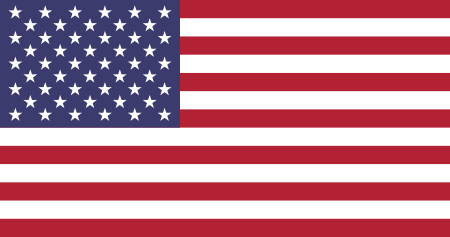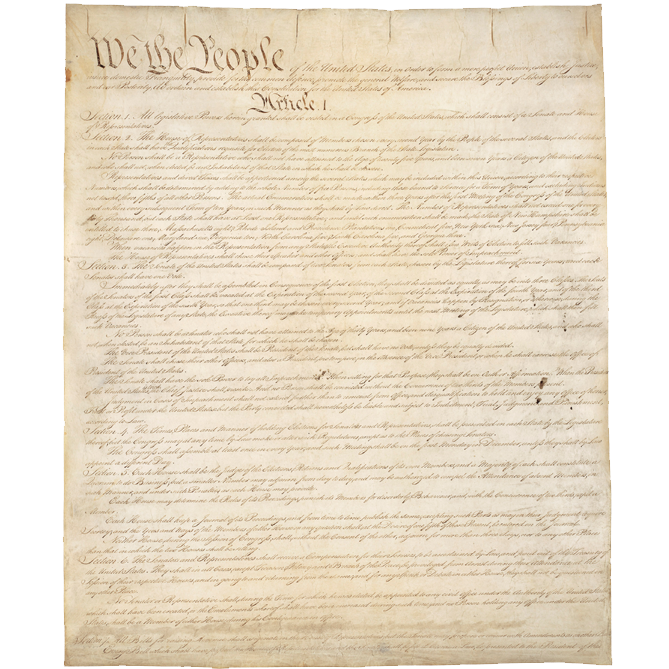An outline follows of the major rights of individuals and safeguards against invasion of those rights by the federal, state and local governments, as guaranteed by the Constitution and its amendments, by the common law and by Supreme Court decisions. Refer to your state constitution and bill of rights for added protection against oppression by state or local officials. The 14th Amendment of the Constitution prohibits the States from depriving any person of life, liberty or property, without due process of law, and from denying to any person equal protection of the law. Together with the design of the American system of government, they also protect the country from its laws being replaced with foreign and cult-religious laws.
-
Freedom to worship according to your conscience.
-
Freedom of speech and freedom of the press, including right to criticize the government and public officials.
-
Right of the people to assemble peaceably and to petition the government for a redress of grievances - fancied or real.
-
The right to keep and bear arms.
This means that the people as a whole shall have the right to keep and bear arms for the defense of their country and themselves. Their right to carry certain types of weapons for personal use, or to have them in the home, is frequently limited by various federal, state, and local laws and regulations. Nevertheless, the right to possess and bear a weapon is a fundamental right.
-
Protection of the people against unreasonable search and seizure of person and property by the government without proper authority and good cause.
-
No person shall be held to answer for any major crime without review and indictment by a grand jury.
-
No person shall be placed in jeopardy (indicted, prosecuted or imprisoned) twice for the same crime.
-
No person shall be compelled to act as a witness against himself in any criminal case.
-
If a person is accused of a crime, he has: the right to a speedy trial; the right to the help of a lawyer; the right to a trial by jury, impartially or selected; the right to call witnesses in their favor.
-
No wife may be required to testify against her husband (or vice versa) in any criminal proceeding.
-
No private property may be taken for public use without just compensation and due process of law.
-
Excessive bail shall not be required, nor excessive fine imposed, nor cruel and unusual punishments inflicted.
-
A person is presumed innocent until proven guilty.
-
The right to vote, secretly, for anyone you want.
The Consitution protects you against abridgement of this right. The specific right, however, is granted by the states.
-
Freedom of person, under protection of Habeas Corpus, which gives any person who claims to be unlawfully held by an officer or private person the right to have a hearing at once so they may know the reason. This means the Government of the United States cannot secretly, or openly for that matter, arrest persons as individuals or groups, throw them into prisons or concentration camps, hold them there indefinitely and do what it pleases.
-
No "ex post faco" law can be passed. This is a big protection: we can go about our daily living and thinking and enjoy the liberty of doing all the existing law permits. Even if, at a later date, our government makes those things illegal, it cannot "date back" the law to make illegal anything that was done before the law was passed.
-
Treason against the United States shall consist only in levying war against them, or adhering to their enemies, giving them aid and comfort. No person shall be convicted of treason unless on the testimony of two witnesses to the same overt act, or on confession in open court.
This precise definition of treason in our Constitution prevents the possibility of a state or other government representative branding as treason the slightest criticism of the government, making trials secret and giving victims no opportunity to confront witnesses.
-
No "Bill of Attainer" shall be passed.
No lawmaking body can pass a bill singling out one person or a group of persons by name and condeming them to punishment without a hearing or public trial. In other words, no legislature can try a citizen for a crime.
-
Protection by the American system of "Checks and Balances" under which each department of government is prevented from having too much power.
-
Freedom of the individual to own property; to work in callings and localities of their choice; to contract about their affairs; to start and manage any enterprise and profit therby; to invest in a profit and loss system; and to buy and sell in a free market insofar as their freedom does not conflict with public interest.

